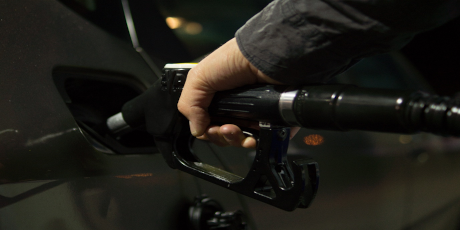Why have petrol prices fallen at the pumps? 08 Apr 2020

Originally published on RTE Brainstorm
Analysis: It's down to a bitter price war between the world's biggest oil producing nations rather than the coronavirus outbreak
By Paul Deane, Energy Policy and Modelling Research Group, MaREI, School of Engineering and the ERI
This article is now also available above as a Brainstorm podcast which you can listen to here.
Petrol pump prices are an incredible barometer of the state of the world around us. If prices are excessively low or high, it means that something unusual has happened somewhere on our planet. This week, the price of oil crashed to a 20-year low. While it is tempting to think this is all due to the Covid-19 containment measures, it's not. The origin of the price crash pre-dates the coronavirus outbreak and is the second bout in a tense struggle for respect and power between the world’s largest oil producers.
Our world needs around 100 million barrels of oil a day and three countries dominate things when it comes to determining the price of oil: Saudi Arabia, Russia and the United States. Until recently, Saudi Arabia was the world’s largest oil supplier and also one of the cheapest producers. Historically, this has given the Kingdom the power to control oil prices by increasing national production to reduce global prices or reducing production to push global prices up.
However, this power and influence came at a cost. For years, Saudi Arabia has been doing most of the heavy lifting in cutting production to hold up oil prices, often to the benefit of other global suppliers but at significant losses to its own finances.
All this changed when hydraulic fracturing (or fracking) unleashed a tide of cheap oil from the United States onto global markets. Fracking is the controversial process of drilling kilometres into the ground and using special fluids to fracture the rocks to release oil and gas trapped inside.
Fracking has helped the US become the largest oil producer in the world ahead of Saudi Arabia. The US producers are very different to Saudi Arabia in makeup, allegiances and loyalties. They are a mixed group of mainly independent companies outside of traditional oil circles and influence. They are less aligned with state-owned oil companies and tend to produce oil when the price is right.
The opening salvo in the battle for oil dominance was fired in 2014 by Saudi Arabia in response to the rising tide of cheap oil coming from the US. The Kingdom refused to rebalance its production in a tense three-year standoff in the hope that oversupply would lead to low prices that would quash US production and put its oil companies out of business. It did not work, so Saudi Arabia backed down and reduced production, while the US oil industry continued to increase supply as prices recovered.
In Ireland, the price we pay for petrol typical lags global oil prices by a number of weeks so we can expect to see pump prices drop a little more in the next month
More recently, Saudi attention has turned to Russia who recently refused to reduce their oil output to stabilise global oil prices in the face of expected lower global demand. Just like in 2014, the Saudis are standing firm and holding production steady as the world again produces more oil than is needed and this oversupply is causing prices to drop.
The reasons for the Russian noncompliance are varied, contested and not often clear. But what is clear is that low prices are hurting all oil producers and this was before the escalation of the Covid-19 outbreak. Countries like Saudi Arabia earn significant revenue from oil production, revenue that is badly needed for economy and social reform.
It is not clear how long this standoff will continue. In the meantime, the Covid-19 outbreak will continue to amplify the price crash as measures to limit social movement to contain the spread of the virus will reduce demand for oil further.
Large parts of the global population are now working from home and rush hour commuting traffic across Europe dropped from more than 50% congestion levels to less than 10% last week. The coming weeks will see very little commuting or flying, with only heavy transport maintaining the demand for oil. All these elements will continue to put downward pressure on oil prices with some analysts expecting to see oil drop below $10 a barrel.
In Ireland, the price we pay for petrol typically lags global oil prices by a number of weeks so we can expect to see pump prices drop a little more in the next month. How low prices will go is difficult to predict: Even if oil was completely free, we would still pay about €1.10 per litre of petrol because of taxes, retail margins and delivery costs. That being said, the next few weeks are probably a good time to top up your home heating oil and fill the car up.
If you are out to practice social distancing, remember to thank the women and men working in the essential service of energy delivery across Ireland. It’s an incredible hidden network that allows us to keep homes warm, food trucks running and the lights on.